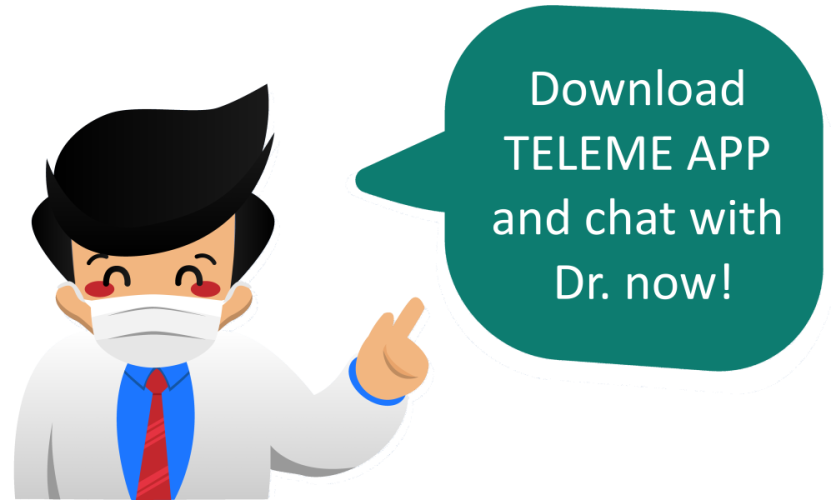E-COUNSELING: VIABLE ALTERNATIVE TO TRADITIONAL FACE-TO-FACE COUNSELING
An extensive study was done on how e-counseling is a viable alternative to traditional face-to-face counseling based on BetterHelp’s e-counseling platform. BetterHelp is the largest e-counseling platform worldwide and offers convenient and affordable access to professional counsellors for anyone who struggles with life’s challenges to get help anytime and anywhere.
Below is a summary of how e-counseling is comparable to traditional face-to-face counseling sourced from an extensive study done by Berkeley Well-Being Institute and its references. Read more on the full study here.
Research studies show that counseling is even more effective at improving mental health than other treatments, such as medication. While research has demonstrated the many benefits of counseling, access to counseling is still one of the largest barriers to getting this type of help, and the majority of research has only assessed the benefits of counseling delivered face-to-face. Telemental health, or the use of technology to provide long-distance counseling, is a field that is rapidly growing in response to this demonstrated and very urgent need.
Why people don’t seek for help?
- Stigma surrounding seeking mental well-being support and lack of affordable care
- Limited geographical access to trained professionals
- Shortage of mental health professionals especially in rural areas
Benefits of e-counseling based on studies
- People feel more comfortable, calm and relaxed during sessions and experience enhanced user satisfaction
- People in need of counseling are more likely to seek out for help when e-counseling is provided as an option
- Increased patient empowerment (i.e. maximizes flexibility of location of therapy as well as flexibility in scheduling therapy)
- Increased clinical efficacy (i.e. allows therapists to see clients in less time)
To examine the benefits of e-counseling, changes in depression symptom severity amongst BetterHelp members from pre-treatment to 3-months post-treatment were examined in Study 1 and user satisfaction was examined in Study 2.
Counselors at BetterHelp are licensed, trained, experienced, and accredited professionals. BetterHelp members are able to choose from text, video, live chat, and phone counseling.
Study 1
Method
Participants:
- 318 BetterHelp members (78% female)
- Age: 19 to 72 years old
- Pre-treatment levels of depression fell in mild, moderate, moderately severe, or severe ranges based on the PHQ-9 Scoring and Interpretation Guide (UMHS Depression Guideline)
- Minimal levels of depression were not included
- Used BetterHelp for between 90 and 104 days (3 months, plus two weeks) to ensure adequate time for treatment to take effect
Before members being e-counseling with BetterHelp (Time 1, or baseline), members were asked to complete the PHQ-9, probing current levels of depression. Between 90 and 104 days later (Time 2, or 3-month follow-up), participants were asked to again complete the same questionnaire.
At Time 1, 37% of the final sample presented with mild symptoms, 29% presented with moderate symptoms, 24% presented with moderately severe symptoms, and 10% presented with severe symptoms. Figure 1 displays depression symptom category at baseline based on the PHQ-9 Scoring and Interpretation Guide.

PHQ-9 measure:
- The Patient Health Questionnaire (PHQ-9) is a validated brief self-report measure frequently used in clinical practice to monitor depression symptoms and severity which was used to assess severity of depression symptoms among participants at baseline and follow-up
- PHQ-9 is a 10-item measure which asks a series of questions regarding how often, in the past 2 weeks, patients have been bothered by specific problems.
- PHQ-9 is scored on a 4-Point Likert scale ranging from “0 – Not At All” to “3 – Nearly Every Day”
Results
Approach
Within-group t-tests – also known as paired samples t-tests – control for correlations between data sets and as such are the best choice when seeking to detect change between pre- and post-tests. Participants were split into four groups before analysis, based on severity of symptoms before treatment (these groups being mild, moderate, moderately severe, or severe).
Depression symptoms
Depression symptom severity was found to be significantly lower at Time 2 than at Time 1 across all four groups. Results showed that the largest improvement post-treatment was seen in participants who had the highest scores pre-treatment. In other words, using BetterHelp for 3 months (or more) significantly lowered members’ depression symptoms, and members with the most severe levels of depression before using BetterHelp experienced the most improvement in their depression after use.

36% of members classified as having “Mild Depression” before using BetterHelp changed to the “Minimal Depression” classification level after use. 65% of members classified as having “Moderate Depression” were classified as having only “Mild or Minimal Depression” after using BetterHelp, and 67% of members classified as having “Moderately Severe Depression” were classified as having moderate, mild, or minimal levels after use.
Most impressive, 78% of members classified as having “Severe Depression” before using BetterHelp were no longer classified as having “Severe Depression” after use, with 15% of these individuals now being classified as having only “Mild Depression”, all within three months of use.
Next up on Healthtips by Teleme, second study examined by Berkeley Well-Being Institute on user satisfaction on e-counseling.
Study and reference by Berkeley Well-Being Institute.
Don’t suffer in silence. Seek help from a mental health professional online.


Disclaimer. TELEME blog posts contains general information about health conditions and treatments. It is not intended to be a substitute for professional medical advice, diagnosis or treatment. The information is not advice and should not be treated as such.
If you think you may be suffering from any medical condition, you should seek immediate medical attention from your doctor or other professional healthcare providers. You should never delay seeking medical advice, disregard medical advice, or discontinue medical treatment because of information on this website.







